
イギリス生活5週目ふりかえり
イギリス生活5週目のふりかえり。
今週はちょい短め。
日本語を使う時間を少なくしないと、目標とする英語レベルに到達するのに、大幅に時間がかかりそうだからという理由もある。

とはいえ、知的デトックスとか、自分の行動を振り返って次週に活かすという点でメリットも多い。
そして、毎週読んでくださってる方、ありがとうございます!
これまでの記事はこちら↓
1週間のスケジュール
◯土曜
本日は朝8時半頃起床。土曜は毎週少し起床が遅くなりがちだ。。
午前中は身支度をした後、先週のまとめ記事を一気に執筆。意外と写真とか拾ってくるのに時間がかかるのです。。
ランチを済ませてからは、午後のマンチェスターシティの試合を観戦しにスタジアムまで散歩する。

「この人サッカーばっかりだな」と思ったそこの貴方。正しいです。
天気が良かったので、40分ほど森の中などを歩いてスタジアムに到着。本場のスタジアムは何度見てもカッコいい。

ちなみに、スタジアムにはエンブレムがデカデカと飾られているのだが、ふとそのデザインに興味が湧いた。由来が気になったのだ。
マンチェスター・シティのエンブレムには、マンチェスターの街を象徴するいくつかのモチーフが描かれています。主な意味は以下の通りです。
①帆船:マンチェスターの産業や貿易の発展に貢献した運河や港湾を表している。
②3本の川:マンチェスター市内を流れるアーウェル川、メドロック川、アーク川を表している。
③赤いバラ:ランカスター家の紋章に由来し、マンチェスターがランカシャー州に属していることを示している。
④鷲:マンチェスター市の紋章に見られるモチーフで、都市の威厳や権威を表している。
これらのモチーフは、いずれもマンチェスターという都市のアイデンティティや歴史、伝統と深く結びついています。
エンブレムのデザインは時代とともに変化してきましたが、帆船や3本の川、赤いバラといった中心的なモチーフは一貫して受け継がれています。
2016年に現在のエンブレムにリニューアルされた際は、よりシンプルで汎用性の高いデザインが採用されました。これはマーケティング面での活用を意識した変更だったと言われています。
以上のように、マンチェスター・シティのエンブレムには、クラブの本拠地であるマンチェスターの歴史や文化、伝統が象徴的に表現されているのです。
マーケティングなどを意図してエンブレムを変更する例は近年良くある。
イングランドのみならず、世界中のチームのロゴの意味を調べるような記事を書いてみるのは面白いかも。
と思っていたら、それらをまとめたサイトがあった。個人的にとても面白かったのでおすすめです!!
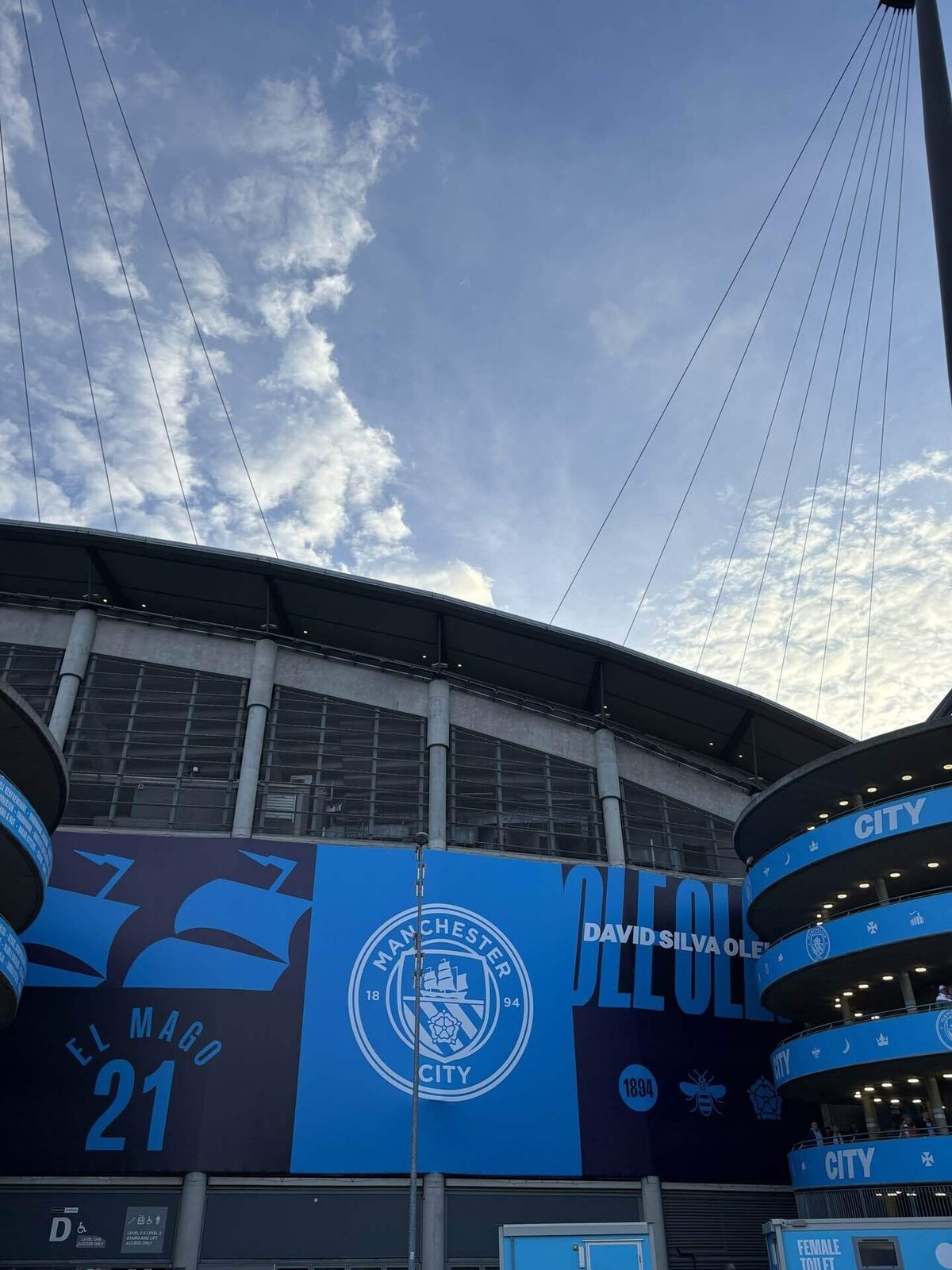






今回の試合は、シティ対ウルブス。
序盤はゆったりとしたペースで試合が展開されていたが、時折テンポが早くなる。テンポが速い時は、ボール回しに技術の差が出るように感じた。
シティはボールを回すのももちろん上手いのだが、ボールを取り返して繋ぐのも上手い。

ウルブズはある程度ボールを繋げるけど、攻め所があまり見当たらない。攻めあぐねている間に取り返され、また攻められるといった形だった。
シティは攻撃時、ペナルティエリア横のスペースを突くのが非常に上手く、そこを起点に得点も生まれた。

中でも圧巻だったのは、この日4ゴールを決めたハーランド。ここ数週間、チャンピオンズリーグも含めて調子が悪かったのだが、しばらく休養をとった後は流石の活躍を見せている。
一番凄いなと感じたのは、試合の流れを持っていかれそうなタイミングで点を取ったこと。試合には流れのようなものがあって、自分たちのチームがイケイケなタイミングとそうではないタイミングがある。
強いチームで、圧倒的に攻め立てていたとしても、そのイケイケタイムに点を取れないと、逆に流れを失って点をポンッと取られたりする。

この日、シティが3ゴールを奪った後、ウルブスが1点返したシーンがあった。スタジアムで観ている時、なんだかこの1点でウルブスが息を吹き返したような雰囲気があったのだ。
しかし、その直後、ハーランドが4点目となるスーパーゴールを、裏への抜け出しからいとも簡単に決めてみせる。
この4点目で、試合の流れが完全にシティに傾き、ゲームセットという感じだった。
流れを持っていかれそうな場面で、すかさずそれを取り返せるのが凄いなと感じた。
試合のハイライトはこちら
試合後はスタジアム近くの巨大スーパーで食材などを買い込み、行きと同じように森の中を歩いて帰宅した。


1時間近くかかったが、天気が良くて本当に気持ち良かった。
今日の英語フレーズ
| English Expression | Explanation | Example Sentence |
|-----------------------------------------------------------------------------------------|-----------------------------------------------------------------------------------------------------------------|-------------------------------------------------------------------|
| Thank you for sending your explanation. | A polite expression of gratitude for providing details or clarifications. | |
| Unfortunately, I was unable to apply for this position as I currently live in the UK. | Expressing regret for not being able to take an opportunity due to geographical constraints. | |
| I hope to see you again next time. | Expressing a wish to meet or encounter someone again in the future. | |
| Is this meant to be some kind of joke or something?
| Questioning whether something said or done is intended as humor due to its perceived absurdity or unlikelihood. | |
| There's no way on earth I’m paying you 4€! | Strongly refusing to pay an amount, emphasizing that it's unreasonable or unacceptable. | |
| Oh, come on! You'll have to do a lot better than that. | Exhorting someone to improve their effort or offer because the current one is insufficient. | |
| Frankly, I think we're wasting each other’s time here. | Openly stating that continuing in the current manner is unproductive for both parties. | |◯日曜
この日は朝7時半に起床。
昨日買い込んだベリーなどを大量に投入し、シリアルを強化する。毎日のシリアルが少し贅沢になった感じがする。

午前中は、英語の復習も兼ねてnote記事を執筆。アウトプットのために整理すると、綺麗に頭の中に入る感じがする。
ビジネスの表現などは慣れないものも多いので、口に馴染ませてスラスラ出るようにしたいなと思う。
お昼は炒飯もどきを作ってみる。ホストが作ってくれたご飯が余っていたので、それを再利用して作った。

昼ご飯を食べてからは、サッカーの試合に出発。今回の試合は無料で2時間も楽しめた。
試合後はマンチェスター市内を散歩して帰路に着く。天気が良い日の街並みはとても美しい。





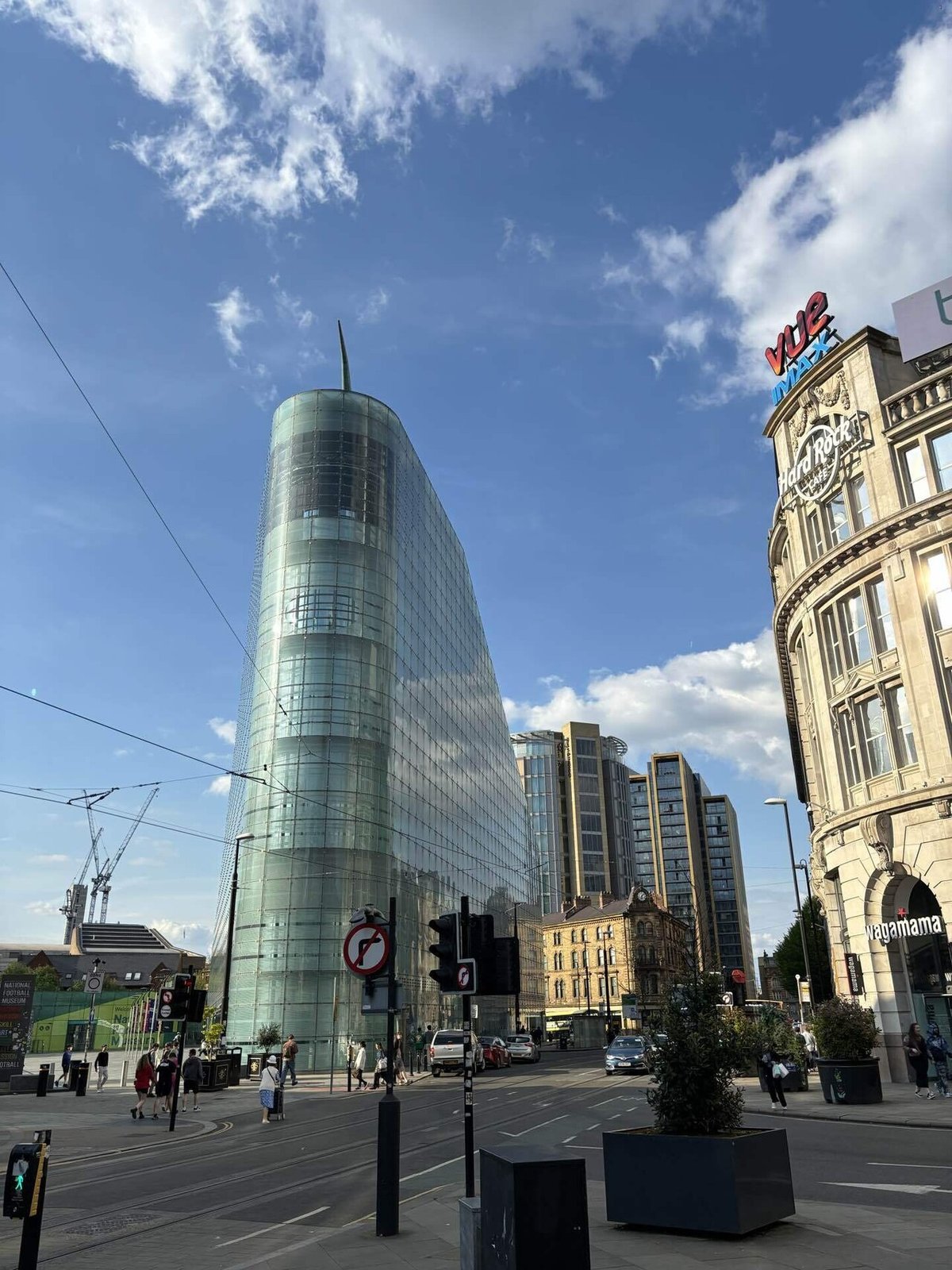
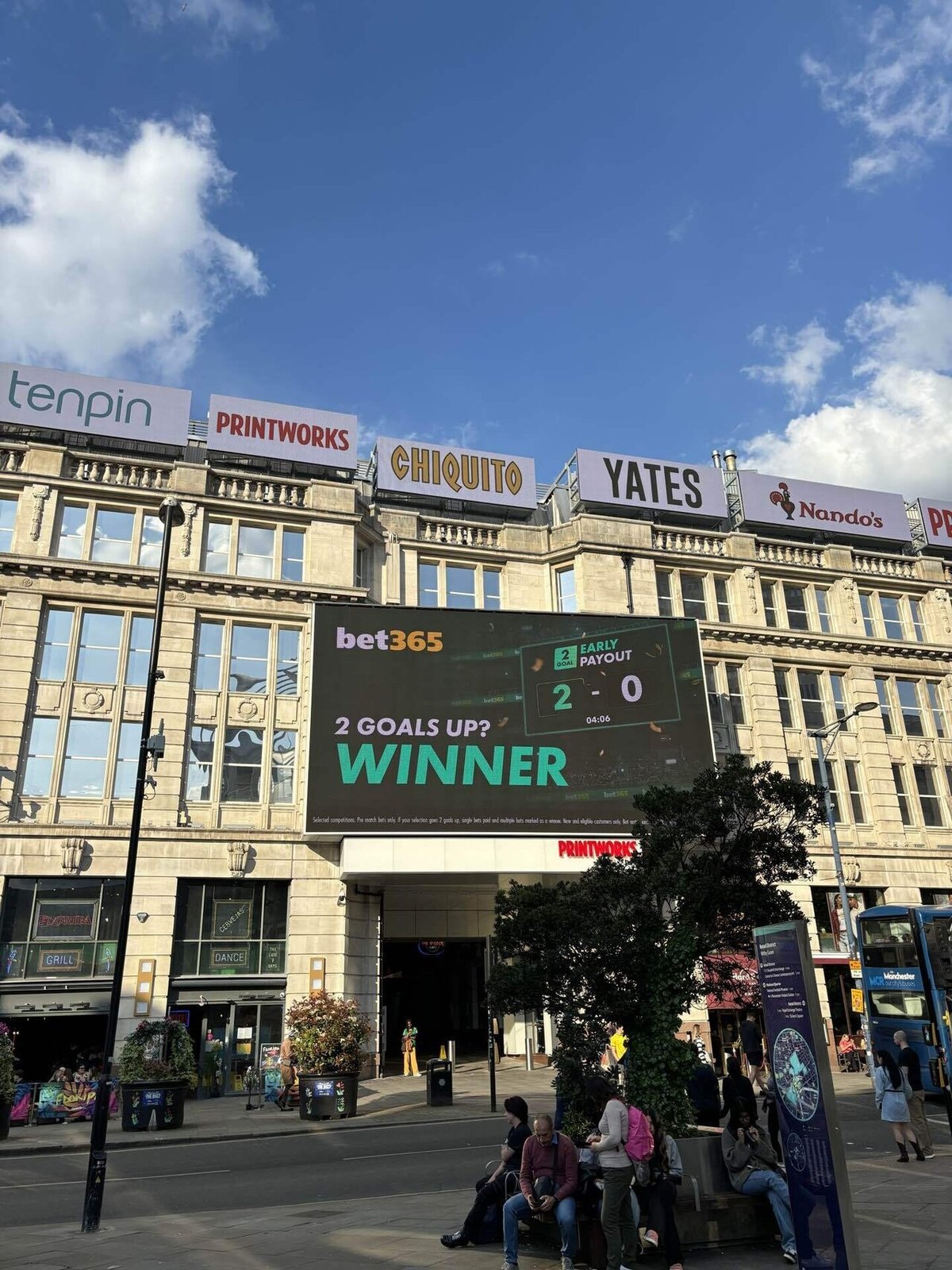

夜は英語の復習も兼ねて以下のnote記事を執筆。その後就寝。
今日の英語フレーズ
| English Expression | Explanation | Example Sentence |
|-----------------------------------------------------------------|--------------------------------------------------------------------------------------------------|----------------------------------------------------------------------------|
| I want to eat leftover rice. | Expressing a desire to eat rice that has been cooked previously and stored. | |
| Rest rice | Incorrect phrase, likely meant to say "leftover rice" or "the rest of the rice." | "Could you put the rest of the rice in the fridge?" |
| A colorful array | Describing a visually appealing and diverse group or collection of items. | "She presented a colorful array of flowers at the show." |
| A colorful array of ingredients | Referring to a variety of ingredients that are visually appealing and diverse. | |
| Align with our wellness mission. | To correspond or match a set of health-focused goals or values. | "This program perfectly aligns with our wellness mission." |
| Delicious and nutritious | Describing food that is both tasty and healthy. | "This smoothie is both delicious and nutritious." |
| The cost implications of using specialty grains. | Discussing the financial impact or considerations related to using unusual or rare types of grain. | |
| The flavor meets our standards. | Confirming that the taste of a product is acceptable according to a set criteria. | |
| Immerse yourself in English | To deeply involve oneself in learning or using the English language. | "If you want to improve quickly, you should immerse yourself in English." |
| We need something that sets us apart | Expressing the need for a distinctive feature or element that differentiates us from others. | |
| Let's focus on flavors and textures | Suggesting that attention should be given to the taste and feel of food. | "For this dish, let's focus on enhancing its flavors and textures." |
| Promising concepts | Ideas or plans that show potential for success. | "The team reviewed several promising concepts for the new product line." |
| In 3 minutes | Incorrectly spelled as "minuite," should be "minute"; referring to something happening soon. | "The meeting will start in 3 minutes." |
| By 3 minutes | Incorrect context for time expression, should likely be "by 3 minutes past the hour" or similar. | |
| Unfold | To open or spread out something; metaphorically, to reveal or disclose details. | "The plot begins to unfold in the second chapter." |
| Inquiring if | Asking to confirm or obtain information. | "I am inquiring if the package I sent has arrived yet." |
| These pants are fancy, right? | Seeking agreement or confirmation that the pants are stylish or elaborate. | |
| Someone please speak English with me! | Requesting someone to converse in English for practice or necessity. | |
| In areas of no interest | Referring to topics or subjects that one does not find appealing or engaging. | "I tend to skip lectures in areas of no interest to me." |
| Calm down | A common expression used to tell someone to relax and not be upset or agitated. | "Calm down, everything will be okay." |
| The running water is cold | Describing the temperature of water that is currently flowing from a tap or similar source. | |
| I will definitely be able to speak English! | Expressing strong confidence in one's future ability to use the English language. | |
| He scored three goals yesterday. | Statement that describes the achievement in a sporting context, specifically in soccer. | |◯月曜
この日は6時に起床。

朝バタバタしていたため、Tシャツを逆に着ていることに通学中に気づく。ちなみに、英語では以下のように言うらしい。
I mistakenly wore my teeshirt backwards.
今週の授業も復習クイズなどから始まる。


やはり簡単には1位を取れず、今回も苦戦。問題文が長いので、読解のスピードを上げないといけないのだ。
授業の後半は、先週から続くプロジェクトの仕上げに入る。地球環境を守るための啓蒙となるような動画を撮影し、ゴミなどを使って構造物を完成させ、クラス対抗で優勝を争うのだ。

チームビルディングにも良いし、英語の能力を鍛えられるので結構良い取り組みだとは思う。
他のクラスの作品もクオリティの高いものが多かった。


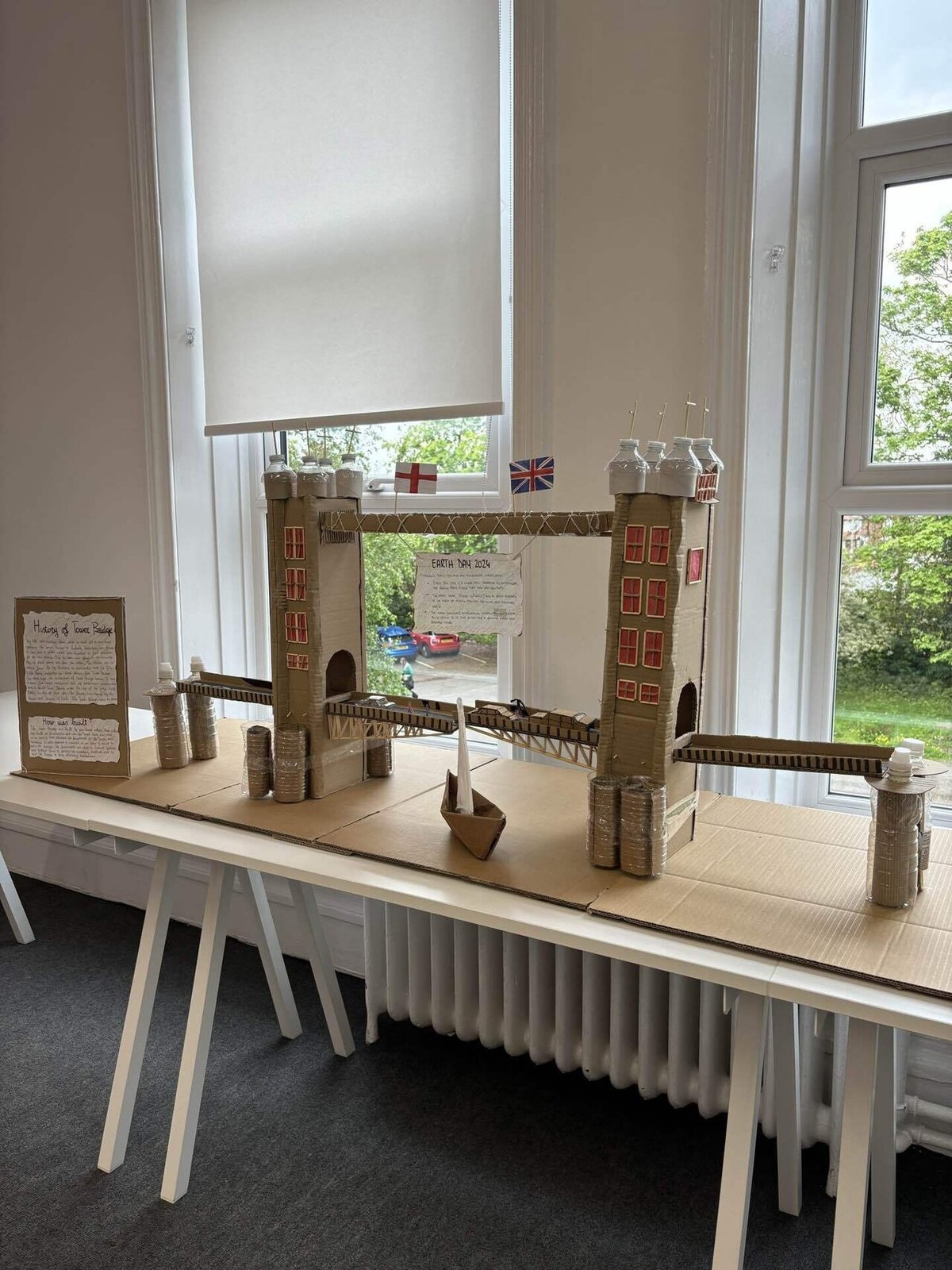

ランチを食べ、午後からは英会話のクラスに参加。
パーティーやバス停で会った時のシチュエーションをイメージし、先週取り組んだ「small talk」(雑談や世間話的なもの)を実践する。
以下のような基礎的な英会話でも、ごちゃごちゃと話していると細かいミスが起きたりする。
自分が間違えたのは、「Yesterday was nice weather.」という表現。
文法的に正しい文は以下の通りです。
Yesterday was nice weather. → Yesterday the weather was nice.
または
Yesterday was nice weather. → It was nice weather yesterday.
主語と補語の位置が逆になっています。「Yesterday」は副詞で、主語にはなれません。主語は「the weather」または「it」とするのが適切です。
「weather」は不可算名詞なので、通常は冠詞をつけず単数扱いします。したがって、「nice weather」とするのが自然です。
主語と動詞の語順が不自然です。「主語 + 動詞 + 補語」の語順が一般的です。
以上の点を修正することで、文法的に正しい文になります。過去の天気について述べる場合は、「Yesterday the weather was nice.」または「It was nice weather yesterday.」のように表現するのが適切です。
今週金曜日にビジネスネットワーキングのイベントに参加することになったので、そこで授業で学んだことを活かせるようにしたい。
授業後は英語の復習を兼ねて、以下のnote記事を執筆。
ネイティブの人との会話、友人とのカジュアルな会話などで知らない表現に出くわすことがあるので、それについてまとめた。今後も更新して覚えていきたいと思う。
note記事を執筆したあとは、無料のパブイベントがあるということで、参加することにする。しかし、ここでも問題発生。
バスに乗って会場に向かったのだが、会場に誰一人参加者らしき人がいない。主催者すらいない笑
もはや「ハイ出ましたそういうの」という感じなのだが、外をうろうろしていると韓国人の友人と出会ったため、英語で雑談しながらバスで帰宅。
仕方がないので、帰り道たこ焼きを食べた。

今日の英語フレーズ
| English Expression | Explanation | Example Sentence |
|--------------------------------------------------------------|-----------------------------------------------------------------------------------------------------|---------------------------------------------------------------------------------------|
| People are people. I am me. | A statement emphasizing individual uniqueness in contrast to general assumptions about people. | |
| I mistakenly wore my t-shirt backwards. | Expressing that one accidentally wore a t-shirt the wrong way around. | |
| I'm always daydreaming on the bus. | Describing a frequent state of being lost in thoughts while riding the bus. | |
| Hey guys | A casual greeting directed at a group of people, typically informal. | "Hey guys, what's the plan for today?" |
| Fostering a proactive attitude | Encouraging a forward-thinking and initiative-taking approach in oneself or others. | |
| Proficiency | The state of being skilled or competent in a particular activity or field. | "Her proficiency in Spanish is remarkable, given she started learning it last year." |
| Exasperate | To irritate intensely; infuriate. | "The continuous noise from the construction site began to exasperate the residents." |
| Go viral | To become very popular quickly in a short time, especially through the internet. | "The video went viral overnight with millions of views." |
| Grow in popularity | To become more liked or favored by more people over time. | |
| Hilarious | Extremely funny, causing great amusement. | "The comedian's joke was so hilarious that everyone in the room couldn't stop laughing." |
| Sam begged her to take some time off | Explanation only needed. | |
| Diagram | A simplified drawing showing the appearance, structure, or workings of something. | "The manual includes a diagram to help users assemble the furniture." |
| To sum up | To give a brief summary or conclusion. | "To sum up, the project was successful despite some minor setbacks." |
| Are you catching a cold? | Asking someone if they are showing symptoms of a cold. | |
| Wings have withered. | Metaphorically suggesting something has lost its strength or vitality. | |
| Asserting oneself vehemently | Strongly stating one's opinions or claims, typically in a forceful manner. | "She found herself asserting herself vehemently in meetings to be heard." |
| As this map showing | Likely incomplete, should be "as this map shows" indicating demonstration or illustration via a map.| |
| No other planet is as beautiful as this one. | A comparative statement highlighting the unique beauty of one particular planet. | |
| This World Heritage Site reminds us of that. | Explanation only needed. | |
| Prosecutor | A legal officer who conducts criminal proceedings against someone accused of a crime. | "The prosecutor argued that the evidence was conclusive." |
| I work for a French company. | Stating one's employment at a company based in France or of French origin. | |
| So the base is a verb. | Clarifying that the foundation or main part of a sentence structure involves a verb. | |
| Digression | A temporary departure from the main subject in speech or writing. | "Let's return to the main topic after that brief digression." |
| I know | Expressing acknowledgment or assurance of information. | "I know, I should have called earlier." |
| I'm on my way | Informing someone that one has already started heading towards a particular location. | |
| Once | Referring to a time when something happened in the past or when a condition was met. | "Once I get the results, I'll let you know." |
| Last time | Referring to the most recent occasion something occurred. | "Last time we met, you mentioned moving to a new city." |
| I want to get a haircut, but I don't know where to go. | Expressing a desire to have a haircut but uncertainty about which place to choose. | |
| You got your hair cut last week, right? Was that barber good?| Asking for confirmation and evaluation of a recent haircut to make a decision. | |
| Thanks! I'll look into it! | Expressing gratitude and indicating that one will consider or investigate the suggestion. | |
| Plans to see! | Likely a mistyped expression, possibly intended to be "Plans to see it!" | |
| I'm going to see it! | Stating intention to watch or attend something. | "I'm going to see the new movie this weekend." |
| Haven't seen you in ages! | An informal way of saying it has been a very long time since seeing someone. | |
| Dying to try | Expressing a strong desire or eagerness to experience something. | "I'm dying to try the new restaurant in town." |
| Gotta run. Catch you later, mate! | Informal way of saying one needs to leave quickly but plans to see the other person again soon. | |
| Next time for sure! | A promise or strong suggestion that something will definitely happen on the next occasion. | |
| Definitely! | Used to express agreement or confirmation without any doubt. | "Are you coming to the game?" "Definitely!" |
| And then | Used to introduce the next item or step in a sequence. | "First we'll go to the store, and then we'll see the movie." |
| Excuse | A reason or explanation put forward to defend or justify a fault or offense. | "He had a valid excuse for missing the meeting." |◯火曜
本日は7時半に起床。
午前中は英語の復習がてら以下のnote記事を執筆。個人的に苦手な前置詞についての記事だ。
天気が良かったので、お昼は市内の屋台で買い、芝生の広場で食べる。

午後の授業は、未来を表す表現について。これまた前置詞と同じように使い分け方が難しく、個人的に苦手だ。。
例えば、以下のような使い分けがある。
未来を表す代表的な表現として、will、be going to、likely toがあります。これらの使い分け方は以下の通りです。
will
・話し手の意思や意図を表す(意志未来)
例:I will help you with your homework.(宿題を手伝ってあげるよ)
・単純に未来のことを述べる(単純未来)
例:It will be sunny tomorrow.(明日は晴れるだろう)
・改まった会話や書面で使われる
be going to
・これまでの状況から判断して、これから起こると予測されることを表す
例:It's going to rain soon.(もうすぐ雨が降りそうだ)
・すでに決まっている予定や計画を表す
例:I'm going to meet my friends tonight.(今夜は友達に会う予定だ)
・くだけた会話で使われることが多い
be likely to
・可能性が高いこと、〜しそうなことを表す
例:He is likely to be late for the meeting.(彼は会議に遅れそうだ)
・常識や知識から予想されることを表す
例:Children from poor families are likely to have health problems.(貧しい家庭の子供は健康問題を抱えがちだ)
willとbe going toはどちらも確実性の高い未来を表すのに対し、be likely toは可能性が高いものの確実ではない未来を表します。
また、ifを使った条件文の中では、一般的にwillは使われず、be going toが用いられます。
例:If it's going to rain tomorrow, we'll cancel the picnic.(明日雨が降りそうなら、ピクニックは中止するよ)
以上のように、willは話者の意思や単純未来を、be going toは予測や予定を、be likely toは可能性の高い未来を表すのが一般的な使い分けです。
ただし、これらの使い分けはネイティブスピーカーの間でも厳密ではなく、状況によって使い分けが曖昧になることもあります。
さらに、他にもこんな使い分けもある。
現在進行形やdefinitelyなども未来を表す表現として使われます。それぞれの使い分けについて説明します。
現在進行形(be動詞 + 動詞の-ing形)
・近い未来に予定されている個人的な計画を表す
例:I'm meeting my boss tomorrow.(明日、上司に会う予定だ)
・手配済みの予定や確定した計画を表す
例:She's leaving for New York next week.(彼女は来週ニューヨークに出発する)
・主語が物事や状況の場合、近い将来に起こることを表す
例:The train is arriving in five minutes.(電車は5分後に到着します)
definitely
・強い確信や断言を表す副詞
例:I will definitely finish the report by Friday.(金曜日までに必ず報告書を仕上げます)
・確実に起こることを強調する
例:He is definitely going to win the competition.(彼は間違いなくその競争に勝つでしょう)
be sure to / be certain to
・確実に〜するだろう、〜に違いないという強い確信を表す
例:She is sure to pass the exam.(彼女は試験に合格するに違いない)
例:He is certain to be elected as the new president.(彼が新しい社長に選ばれるのは確実だ)
be about to
・今にも〜しようとしている、〜するところだという切迫した未来を表す
例:The game is about to start.(試合は今にも始まろうとしている)
例:I'm about to leave the office.(もう少しで会社を出るところだ)
これらの表現は、話者の確信度や予定・計画の確実性に応じて使い分けられます。
現在進行形は個人的な予定や手配済みの計画に、definitely は強い確信を伴う未来に、be sure to / be certain to は確実性の高い未来に、be about to は切迫した未来を表すのに用いられます。
状況に応じて適切な表現を選ぶことで、未来に対する話者の考えや態度を正確に伝えることができます。
その他に面白かったのは、Reallyの使い方について。Really?のアクセントの位置によって、意味合いが変わってくるとのこと。
例えば以下のようなもの。
Re-a-lly? (上昇調のイントネーション)
意味:本当に? / 本当かな? / そうなの? (驚きや疑いの気持ちを表す)[1][5]
説明:最後の音節を上げて発音することで、話し手が聞いた内容に驚きや疑問を感じていることを表します。相手の発言を100%信じていない、もしくは意外に感じたときに使われます。
Re-a-lly. (下降調のイントネーション)
意味:なるほど。 / そうなんだ。 (理解を示す)
説明:最後の音節を下げて発音することで、相手の話を理解し、納得したことを表します。驚きはあまりなく、むしろ肯定的に受け止めている印象を与えます。
Re-a-lly! (強めの発音)
意味:すごいね! / 本当だね! (感心や称賛の気持ちを表す)
説明:全体的に強めに発音することで、相手の話に感心したり、称賛したりする気持ちを表します。ポジティブな反応を示す場合に使われます。
このように、Really?のアクセントやイントネーションを変えることで、話し手の反応や態度に違いが生まれます。声の調子一つで、相手に与える印象が変わるので、状況に合わせて使い分けることが大切です。

英語は奥深いし、先が長い笑
授業後は、スターバックスでライティングの課題を行う。

テーマは科学技術の進歩が与える影響について。一応以下に添削後の文章も載せてみる。
Which do you think the future will be, heaven or hell?
These are my five predictions about the future.
First Prediction: Japanese Population
The Japanese population is going to decrease rapidly in the next 20 years. This fact indicates that a lack of workers is going to happen. It will also likely lead to an economic collapse.
Second Prediction: War
Currently, several wars are happening in this world. What do you think, will another war happen or not? In my opinion, another war will definitely happen because the history of the world is proof.
Third Prediction: AI
The development of AI is awesome. Some scientists also predict that the ability of AI will surpass that of humans in the next 5 years. The world will likely resemble a science fiction movie.
Fourth Prediction: Environmental Problems
The Earth is getting hotter as ice melts, and some countries will likely be underwater in the next 50 years.
So far, I have mentioned three pessimistic predictions. However, will our future really be like that?
Fifth Prediction: Technology
From now on, I will talk about the bright aspects of our future.
My last prediction is that technology will solve all of these problems. In Japan, AI or robots will help workers. New weapons will stop wars. AI will be a partner to humans. New clean energy created by science will reduce the use of fossil fuels, which cause global warming.
Conclusion
In conclusion, I believe in a brilliant future.
What do you think? Will our future be heaven or hell? You can choose both heaven and hell by your decisions and your behavior.
Stay curious and think carefully about our future.
薄いことしか書けていないので、表現力や語彙など含め強化しないといけない。。
ちなみに自分は科学技術を盲信しているわけではないが、そのスタンスに立った方が書きやすかったのでそうした笑
課題を終えてからは、パブでチャンピオンズリーグを観戦。

対戦カードは、パリサンジェルマン対ドルトムント。ファーストレグもまぁまぁ面白かったのだが、セカンドレグは別格。
ドルトムントは全員がハードワークをするし、FWからDFラインまでが本当にコンパクトで美しい。パリサンジェルマンが猛攻を仕掛けてくる中でも堅実に守り続けることができる。
パリサンジェルマンの強みの一つがサイドからの突破なのだが、中央がコンパクトな布陣なので、最終的に得点には繋がらない。

そして特質すべきは、二人のセンターバック。二人とも、ヘディングで全く競り負けないし、フィードとビルドアップがうますぎる。
特にドルトムントの左センターバック。今後注目したい。
試合は、フンメルスがコーナーキックからヘディングで決め、ドルトムントが勝利。全体的に、ドルトムントの組織力が上回っていたかなと思う。

ドルトムントって、昔からずっと良いチームなのが本当に凄い。経営やフロントの人たちがめちゃ優秀なんだろうな。
試合のハイライトはこちら
今日の英語フレーズ
| English Expression | Explanation | Example Sentence |
|----------------------------------------------------------|-----------------------------------------------------------------------------------------------------|----------------------------------------------------------------------|
| This city has a lot of buses. | Stating that there are many buses available in the city. | |
| Lots of buses running. | Indicating that many buses are actively operating. | |
| The only way to learn is to repeat it out loud. | Suggesting that vocal repetition is the most effective method for learning something. | |
| The only way to learn is to repeat reading aloud | Suggesting that reading aloud is the most effective method for learning. | |
| That's all | Used to indicate that there is nothing more to say or that the conversation or list is complete. | "I've updated the files, and that's all for now." |
| My head is full of soccer. | Expressing that someone is preoccupied with thoughts of soccer. | |
| Questionnaire | A set of printed or written questions used for collecting information in a survey. | "Please fill out this questionnaire about your shopping preferences." |
| Withdraw cash | To take money out from a bank account. | "I need to withdraw cash from the ATM." |
| Arrangement | The action, process, or result of arranging or being arranged. | "We've made an arrangement to meet at five." |
| Intention | A thing intended; an aim or plan. | "His intention was to finish the project by Friday." |
| Enter! | A command to come in or join. | |
| Mix! | A command to combine two or more substances or elements. | "Mix the flour and water to make the dough." |
| Shed light on | To make something less confusing or more clearly comprehensible. | "The research paper helped to shed light on the issue." |
| Enlighten | To give someone greater knowledge and understanding about a subject or situation. | "Please enlighten me about the details of the plan." |
| Call it a day | To decide or agree to stop doing something, usually an activity that has taken up a lot of time. | "We've been working for hours, let's call it a day." |
| So far | Up to this point or up to the present time. | "So far, we have completed all the tasks without any issues." |
| From now on | Starting from the present and continuing into the future. | "From now on, I'll be more careful with my spending." |
| After all | Used to add information that confirms or changes what has previously been said. | "He decided to go to the party after all." |◯水曜
本日は7時半に起床。起きてすぐ授業に向かう。
今日はビジネスイングリッシュが4コマある日だ。
授業内容は毎回濃くて役立つので、またどこかでまとめてみようと思う。


この日から学校の前にバスケットボールとゴールが設置され、休み時間などに生徒同士でバスケのフリースロー対決が行われるようになった。
初めましての人とも自然と交流できるので、良い仕掛けだと思う。学校には他にもビリヤード台や卓球台があったり、自然と交流できる環境づくりが上手いなと感じる。
授業後は折り紙のワークショップに何故か参加した後、友人たちとマグドナルドへ。
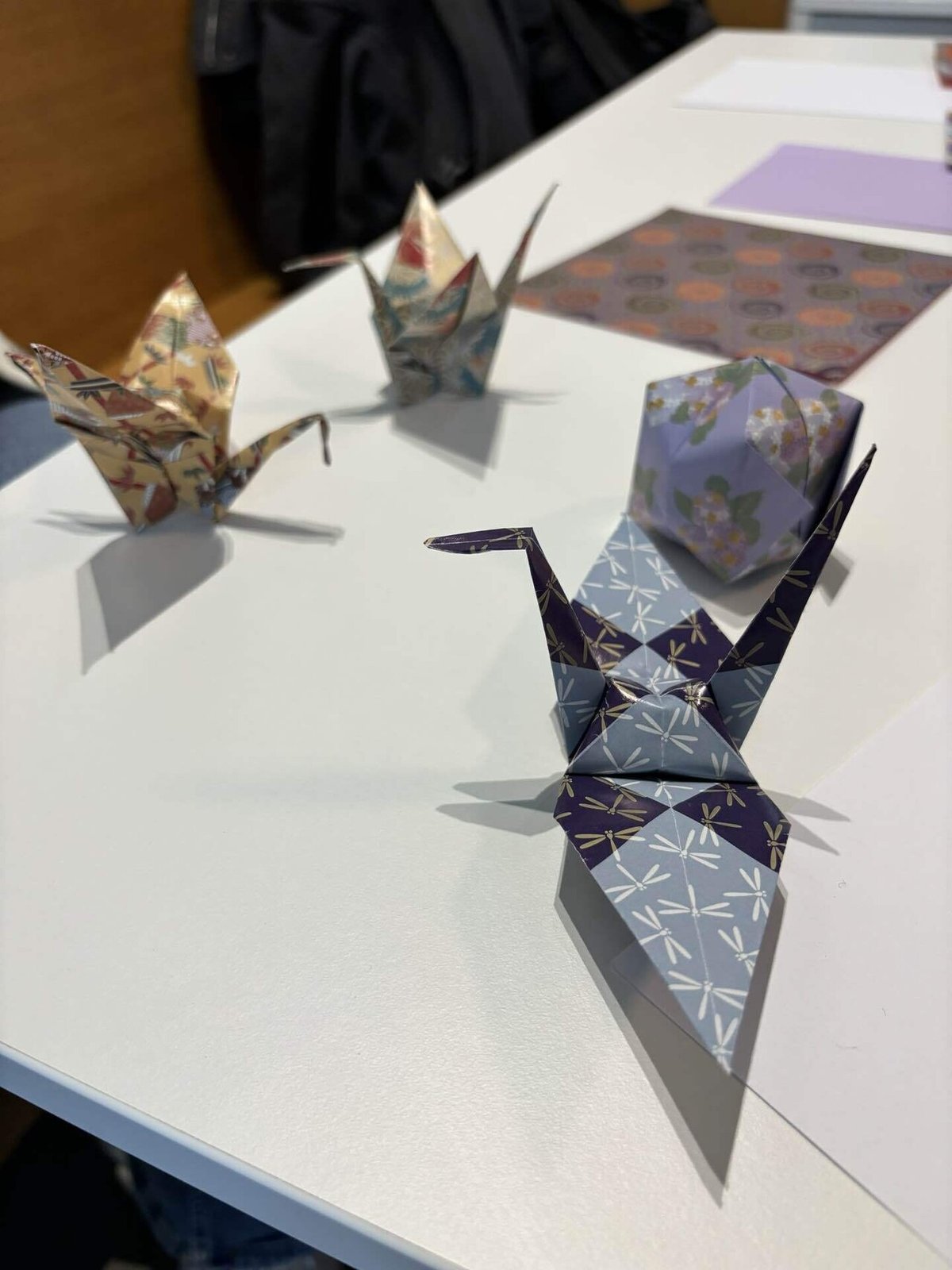


マックはあまり好きではないのだが、野菜サラダがあるということでここにした笑
こちらに来てから、意識しないと野菜が不足するし、サラダが恋しくなる。
夜ご飯を済ませた後は、友人たちとそのままパブへ。チャンピオンズリーグの大一番を観戦しに行く。パブには他にも生徒がたくさん。



劇的過ぎる試合だったし、展開がレアルすぎる試合だった。
試合のハイライトはこちら
今日の英語フレーズ
| English Expression | Explanation | Example Sentence |
|---------------------------------------------------------|-----------------------------------------------------------------------------------------------|-------------------------------------------------------------------------|
| Get rid of miscellaneous thoughts in your head. | Advising someone to clear their mind of random, distracting thoughts. | |
| I don't know what to say. | Expressing uncertainty or confusion about how to respond in a conversation. | |
| How do I say? | Asking for the correct way to express something in words. | "How do I say 'thank you' in Japanese?" |
| How do you say? | Asking for assistance in saying something in another language or more appropriately. | "How do you say 'delicious' in Spanish?" |
| Conjunction | A word used to connect clauses or sentences or to coordinate words in the same clause. | "And, but, because, and although are examples of conjunctions." |
| What do you think my weakness is? | Asking for someone else's perception of one's personal shortcomings. | |
| What do you think my challenges are? | Asking someone what difficulties they believe the speaker might face. | |
| Try to reserve one | Suggesting to book or keep something in advance. | "We should try to reserve one table at the restaurant." |
| To your horror | Used to describe a reaction of shock or disgust. | "To your horror, the vase shattered into a thousand pieces." |
| You've hardly had a moment to spend with your family | Highlighting the lack of quality time someone has been able to spend with their family. | |
| There's something kids are all going mad for this Christmas | Describing a popular or trendy item among children for the holiday season. | |
| You fly out of the office and into a taxi | Describing someone hurriedly leaving the office and catching a taxi. | |
| But as you head for it | Indicates action towards a goal or destination, but something unexpected may occur. | |
| Hold on | Used to ask someone to wait or pause for a moment. | "Hold on while I check those details for you." |
| Contract | A legally binding agreement between parties. | "We need to review the contract before we sign it." |
| Pay off | To result in success or a benefit after investment or effort. | "All her hard work will pay off when the project is successful." |
| Let’s have a look at | Suggesting examining or considering something closely. | "Let's have a look at the details before we decide." |
| Carry on | To continue doing something. | "Carry on with your work; don't mind the noise." |
| A one off deal | Referring to something that is unique or will only happen once. | "This is a one-off deal, so think carefully before you pass it up." |
| A head on conflict | Direct and confrontational disagreement or clash. | "They were involved in a head-on conflict over the business strategy." |
| Thief | A person who steals something from another. | "The thief was caught on camera stealing the goods." |
| Manoeuvre | A movement or series of moves requiring skill and care. | "The driver executed a tight manoeuvre to avoid the accident." |
| Win at all cost | To do whatever it takes to succeed, regardless of the consequences. | |
| Worth the hassle | Justifying the effort or difficulty involved in doing something because the outcome is good. | "Getting up early to see the sunrise was definitely worth the hassle." |
| Ended in deadlock | A situation where no progress can be made or no advancement is possible. | "The negotiations ended in deadlock, with no sides willing to budge." |
| Blackmail | The act of getting money from people or forcing them to do something by threatening to reveal a secret of theirs or harm them in some way. | "He was guilty of blackmailing his coworker." |
| Compromise | An agreement or settlement of a dispute that is reached by each side making concessions. | "After long discussions, they reached a compromise." |
| Guilty | Responsible for a specified wrongdoing. | "The jury found him guilty of the crime." |
| Feel guilty | To experience guilt over one's actions or thoughts. | "I feel guilty for not attending the meeting." |
| Resort to emotional blackmail | To manipulate someone by playing with their emotions to gain something. | |
| Go through | To experience or endure a situation or condition. | "She had to go through a lot of challenges to reach her goals." |
| Counterproductive | Having the opposite of the desired effect; hindering the achievement of a goal. | "Arguing about who is to blame is counterproductive at this point." |
| Pet peeve | Something that a particular person finds especially annoying. | "One of my biggest pet peeves is people talking loudly on their phones in public." |
| Snoring | The act of making a snorting or grunting sound while asleep. | "His snoring kept me awake all night." |
| Banging | Making a sudden loud, sharp noise, typically repeatedly. | "Someone was banging on the door late at night." |
| Make sure | To take action to guarantee something happens or is certain. | "Make sure to lock the door when you leave." |
| Altered | Changed, often in a subtle or small way. | "The plan was slightly altered to accommodate new ideas." |
| Come over | To visit casually. | "Why don't you come over this weekend?" |
| I don't suppose you | A polite way of asking for something or suggesting. | "I don't suppose you have a pen I could borrow?" |
| Sort it out | To resolve a problem or dispute. | "We need to sort it out before it becomes a bigger issue." |
| That's make sense | Incorrect phrase, likely meant to be "That makes sense," meaning it is logical or understandable. | |
| Good grief | An exclamation used to express surprise, annoyance, or dismay. | "Good grief, why is this happening now?" |
| Hold her up | Likely a typo for "hold up," meaning to delay or impede. | "I didn't mean to hold her up this morning with my questions." |
| Declare | To make known formally or officially. | "The government will declare the results of the election tonight." |
| Specify | To identify clearly and definitely. | "Please specify which ingredients should be avoided due to allergies." |
| Diagnosing | Determining the nature of a problem or disease based on examination of the symptoms. | "The doctor is diagnosing the cause of the patient's illness." |
| A long shot | Something that has a very low probability of happening. | "Winning the lottery is a long shot." |
| Slight hiccup | A minor problem or setback. | "We had a slight hiccup with the delivery, but it's been resolved now."|
| Quick fix | A fast and easy solution that may not be the best or most thorough. | "Using tape is just a quick fix; you should really replace that part." |
| Sort of defect | An imperfection or fault in something, often a product or component. | "The device has a sort of defect in its battery design." |
| Sort of | Used to say that something is partially the case. | "It's sort of like a cake, but more like a pie." |
| Critical | Of great importance or essential. | "The witness's testimony is critical to the case." |
| Insignificant | Lacking in size, importance, or impact. | "The amount of money lost was insignificant compared to the total budget."|◯木曜
この日は6時20分に起床。朝から何故か頭が重く、移動中のバスの中で眠ってしまう。高度な二度寝をかましてしまった。
授業のテーマは冠詞。冠詞も苦手分野の一つ。復習テストは初めて正答率が50%ほどになってしまい、大苦戦した。仕方がないので、AIに小学生でもわかるように解説してもらった。
小学生にもわかりやすいように、冠詞の使い分けのポイントを以下のようにまとめました。
「a」と「an」(不定冠詞)の使い分け
・「a」は子音で始まる単語の前に付ける(a book, a pen)
・「an」は母音(a, e, i, o, u)で始まる単語の前に付ける(an apple, an egg)
「the」(定冠詞)を使うとき
・特定のもの、前に出てきたものを指す時(I have a dog. The dog is cute.)
・一つしかないもの(the sun, the moon)
・世界に一つしかない川や山、建物など(the Amazon River, the Eiffel Tower)
冠詞を付けないとき(無冠詞)
・複数形の名詞(I like dogs.)
・固有名詞(人名、国名、都市名など)(Tom, Japan, Tokyo)
・言語・教科・スポーツなど(English, math, soccer)
大切なこと
・数えられる名詞(可算名詞)の単数形には、「a」「an」「the」のどれかを付ける
・数えられない名詞(不可算名詞)の単数形には、「the」か無冠詞
このように、母音か子音かを見分けて「a」と「an」を使い分け、特定のものには「the」を、複数形や固有名詞などには冠詞を付けないことを覚えておくと良いでしょう。また、数えられるかどうかで、単数形の時の冠詞の付け方が変わることにも注意が必要です。
例文を使って繰り返し練習することで、自然に使えるようになります。英語の本や動画を見る時にも、冠詞の使い方に注目してみると良いでしょう。
授業後はそのまま帰宅。明日の朝がとても早いので、今日はそれに備えて動きすぎないようにしておきたかった。
また、この日は朝から非常に眠く、調子が上がらなかったのもある。そういう日も、極力気力で起きて、リズムを整え、二度寝等しないようにしたい。
体調を整えられたのは良かったのだが、一点だけ後悔が。無敗記録を更新し続けているレヴァークーゼン(Leverkusen)が、またしても劇的な試合を繰り広げたのだ。
後半ロスタイムで劇的に追いつく、今シーズン何度も見た展開。ネット上では「Leverkusen」ではなく「Neverlusen」という造語が生まれていた。
サッカーを通して多くの人のパワーを感じて泣きそうになる。なんと劇的な試合が続く1週間なのでしょうか。
試合のハイライトはこちら
今日の英語フレーズ
| English Expression | Explanation | Example Sentence |
|--------------------------------------|-------------------------------------------------------------------------------------------------------------|-----------------------------------------------------------------------------|
| Irrelevant | Not connected with or relevant to something. | "Your argument is interesting, but it's irrelevant to the case at hand." |
| Minor | Lesser in importance, seriousness, or significance. | "It's only a minor issue that can be fixed quickly." |
| Ongoing | Continuing; not yet finished. | "We are dealing with ongoing investigations." |
| Persistent | Continuing to exist or endure over a prolonged period. | "She admired his persistent efforts to learn the language." |
| Severe | Very great; intense. | "The city faced severe weather conditions last night." |
| Trivial | Of little value or importance. | "They often argue over trivial matters." |
| Unimportant | Not important; lacking value or significance. | "The details are unimportant to the overall understanding of the novel." |
| Urgent | Requiring immediate action or attention. | "The patient was in urgent need of care." |
| Get your head out of the clouds. | Stop daydreaming or being unrealistic, and start focusing on what needs attention or is of practical concern.| "You need to get your head out of the clouds and focus on your studies." |
| Be blasted | Used to express dismay or irritation, often humorously or lightly. | "My plans were blasted when it started to rain unexpectedly." |
| Altered | Changed, usually in a small but significant way. | "The plan was altered to accommodate the new circumstances." |
| Rubbing | Applying pressure and moving over a surface, typically repeatedly. | "He was rubbing his eyes from fatigue." |
| Messiness | The state of being messy, disorderly, or untidy. | "The messiness of his room was astonishing." |
| Sneeze | To suddenly expel air from the nose and mouth in an involuntary reflex. | "I couldn't stop sneezing during the spring allergy season." |
| Examined | Inspected or looked at closely. | "The doctor examined the patient thoroughly." |
| Expand on | To give more details or new information about something. | "Could you expand on your previous point?" |
| Alter | To change something, usually slightly, or to cause the characteristics of something to change. | "She had to alter her dress to fit perfectly." |
| Pave the way | To create a situation that makes easier for something to happen or be developed. | "The new research will pave the way for advanced cancer treatments." |
| Plural form | The form of a word used to denote more than one. | "In English, the plural form of 'car' is 'cars'." |
| Article | A piece of writing included with others in a newspaper, magazine, or other publication. | "She published an article on renewable energy in the science journal." |
| Really extraordinary | Something that is very unusual or remarkable. | "The athlete's comeback was really extraordinary, given his age and injuries." |◯金曜
この日は朝7時からビジネスネットワーキングのイベントがあるため、朝5時に起床。
身支度を整え、こちらに来てから初めてジャケットを羽織る。ビジネス関連のイベントなので、服装の指定があるのだ。
バスを乗り継ぎ、イベント会場に向かう。イベント会場は趣のある洋館といったようなところか。

会場に入ると既に何人かビジネスマンの方たちがおり、自然な形で「small talk」が始まる。
「おぉこれが本物のsmall talkか」と内心感心しながらも、ネイティブの方達の会話の速度に追いつくのに精一杯。
次から次へとビジネスマンが到着し、途切れることなく会話は続いていく。会話をする時の立ち振る舞いも見られているのだろうなと思い、身が引き締まる思いだった。

その後は朝食会場に移動し、イングリッシュブレイクファーストをいただく。

しかし、和やかな朝食会場の雰囲気は、一瞬にしてピリリと変化することになる。
今回のイベントの本命。ビジネスマッチングのためのプレゼンが行われるからだ。
会場にいる全員が、1分以内に自分のビジネス経験などをプレゼンし、良いなと思った人に連絡先などを渡すという取り組み。
いわゆるエレベーターピッチと呼ばれるもの。
エレベーターピッチとは、15〜30秒程度の短い時間で、自分自身や自社のビジネス、アイデア、商品・サービスなどについて、簡潔かつ印象的に説明・アピールする手法のことです。
主な特徴は以下の通りです。
・起源は、アメリカのシリコンバレーで、起業家がエレベーターに乗り合わせた投資家に対して短時間でビジネスプランを説明したことから生まれた。
・15〜30秒、約250文字程度で、相手の興味を引き、印象に残るよう工夫して伝える。
・自己紹介、課題、解決策、顧客価値、行動喚起などの要素を含めることが多い。
・ビジネスの場だけでなく、就職活動の面接、社内プレゼンなど様々な場面で応用できる。
・短時間で的確に伝えるスキルが身につくため、コミュニケーション能力、プレゼン力、考えを整理する力などが向上する。
・相手のニーズや心理を考えて話の構成を練ることで、観察力や洞察力も高められる。
つまり、エレベーターピッチとは、限られた時間を有効活用し、相手に強く印象づけ、興味を持ってもらうための「短時間プレゼンテーション」の手法と言えます。ビジネスパーソンにとって習得すべき重要なスキルの一つと考えられています。
プレゼンが始まると、参加者たちの目つきが明らかに鋭くなる。
他の参加者は大部分がネイティブなので、スラスラと雄弁に語るのだが、会話スピードは速いし、専門用語もあるし、小粋なジョークもあるしで半分ほどしか理解できなかった。。
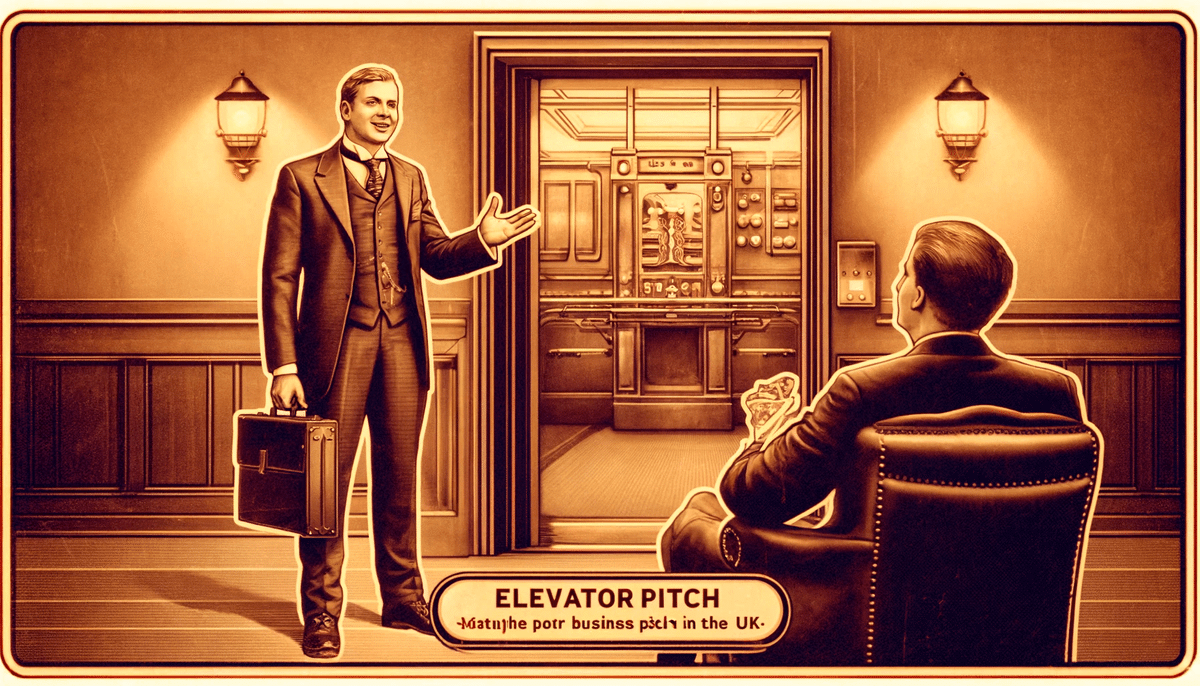
そしてついに、自分の番が回ってくる。自分なりに昨日の夜練習はしていたのだが、40名近くの参加者の前に立った瞬間、全て頭から吹き飛んだ笑
更には初めましての参加だったので、参加者全員から品定めされているような感じもする。日本語なら良いのだけど、英語でというのが。。
しかしここで負けてはいられない。前職で散々話す仕事はしてきたので、なんとか英語を絞り出し、ボディーランゲージと笑顔と勢いで乗り切った笑


すると最後のビジネスマッチングの際、一つの企業から声をかけてもらい、指定の連絡先にCVを送ることになった。なんとかプレゼンが伝わったようで良かった。。

自分の英語はまだまだビジネスレベルには遠いとは思いつつも、自分の課題もわかったし、本物の英国流ビジネスに触れることができ、貴重な経験になった。
朝8時半にイベントが終わった後は、共に参加したチリの友人と学校へ向かう。彼は建築家を目指しており、将来的に英国で働くためのコネクションを作りたくて参加したそうだ。
彼も一件連絡先を手に入れることに成功しており、お互い労いながら学校へと向かった。

道中、その友人がどのように英語を勉強したのか、いくつかオススメの方法を教えてもらった。
彼の場合は、YouTubeやTwitchなどで英語圏の配信者をフォローし、政治や経済、建築などの自分が興味のあるトピックを見まくっているそうだ。
確かに他にも、ゲーム配信を見たり、ゲームを英国圏の友人とやることで語学を身につけた人もいた。
彼は先ほどのビジネスイベントの会話がほとんど理解できたとのことで、日々のこうした習慣で、リスニング力が培われているのだろう。
学校に到着してからは、Linkedinで繋がった人にイベントのお礼メールをしたり、CVを完成させて送る準備をした。

ちなみに、金曜日のお昼は学校の卒業式の日。毎週卒業式があるのが新鮮だが、毎回なんだかエモい。短い時間しか一緒にいなかった仲間もいるけど、時間の長さではない特別な豊かさを感じる。
コロンビアでコーヒー農家を営んでいる仲間からは、今度コロンビアに来る時は店に寄ってねと声をかけてもらった。
午後は科学技術についての授業を2コマ。朝のイベントのままスーツで行ったからか、めちゃくちゃ多くのクラスメイトから「今日めちゃくちゃいい感じじゃん!」と褒めてもらう笑
1コマ目は普通に授業を行ったのだが、2コマ目は講師の粋な計らいで、屋外で授業をすることに。とても天気が良かったので、気持ちが良かった。

2コマ目は、「科学技術は人間から人間性を奪うのか」というテーマでひたすらディベート。2つのチームに分かれたのち、リサーチや主張をまとめる時間をとり、その後意見をぶつけ合う。
クラスの生徒たちの英語レベルも高いので、議論は白熱。ただ、英語を理解することと、議論が本筋からずれていないかを確認することを同時にやるのは中々ハードルが高かった。
自分もなんとか必死にくらいつき、ディベートは引き分けで終了。議論が活発で、それぞれ独自の主張を持っていてなんだか楽しい。
今日で卒業する生徒もいたため、授業の最後に一緒に写真を撮り、解散となった。
授業が終わってからは、マンチェスターシティのユースチームの試合を観戦しに行く。


ユースチームといえど、めちゃめちゃレベルが高く、エキサイティングな試合だった。

U18にも関わらず身体も出来上がっているし、止める蹴るの技術も高く、スピードも強度もある。トラップしてからのツータッチ目の速さ、攻撃時の繋ぎのスムーズさに特にレベルの高さを感じる。


ピッチサイドから観戦していたため、スピード感含めリアルに感じることができて良かった。(ちなみに試合は全編ネットで見ることができる)
全員めちゃくちゃうまいんだけど、この中でプロになれるのは一握りという厳しい世界。
現在トップチームの選手と比較した時、上手いだけではなく、目立つ特徴や武器がある人が上に行くのかなとも思った。
試合は大量得点でマンチェスターシティユースの勝利。大会の決勝戦だったので、優勝セレモニーが行われた。試合後はめちゃ眠かったので、帰って即就寝。
試合の全編はこちら
今日の英語フレーズ
| English Expression | Explanation | Example Sentence |
|--------------------------------------------------------------------|------------------------------------------------------------------------------------------------------|------------------------------------------------------------------------------------------------------|
| Sophisticated surgical robots are transforming healthcare procedures. | This phrase indicates that advanced technology in the form of robots is significantly changing the way medical operations are performed. | |
| Constantly evolving | Continually changing or developing. | "Technology is constantly evolving, making older models obsolete quickly." |
| Slight | Small in degree; not extensive or severe. | "There was a slight delay in the schedule, but nothing too disruptive." |
| Evolve | Develop gradually, especially from a simple to a more complex form. | "The company's marketing strategies have evolved significantly over the past decade." |
| Princess is here | A simple declaration that a person referred to as "Princess" is present. | |
| I am fine without lunch on Saturdays and Sundays! | Expressing that the speaker does not need or desire lunch on weekends. | |印象的だったこと
・ビジネスレベルの英語までまだ先が長い
→ビジネスレベルのリスニング、リスニングにレベルがまだ追いついていない。リーディングも然り。自分の現実的なレベルを突きつけられる1週間で良かった。
・英語の知識だけではなく、コミュ力を高める必要性を感じた
→目が合ったらにこやかに挨拶すること、海外の人たちの会話のノリやユーモアを理解して使いこなせるようになること、たわいもない会話でも気軽にコミュニケーションを取るなど、コミュ力をもう少し高めたい。
英会話力とは以下のような複雑な式な気がする。「英会話力=英語力×コミュ力×ユーモア×異文化理解×世の中の森羅万象についての知識」
・友人たちが卒業していくのが寂しい。
→短い期間であっても、友人たちが卒業していくとなんだかんだ寂しい。大人になってから利害関係なく出会える友人は貴重だと思うので大切にしたいし、色々な国籍の友人と出会えるので、いつか世界中に会いに行きたい。
・ルーティーンの重要性
→日によって起床時間などが微妙に異なったり、生活習慣が変わるのはあまり良くない。ルーティーンを上手に取り入れて、体調を一定に保てるようにすることの重要性を改めて感じた。
なお、プロサッカー選手のルーティーンなどは凄まじい。プロ意識の高さを感じる。
来週の目標
・英語読解のスピードを上げる。
・シャドーイングを試す。
・コミュ力とスピーキング力向上週間。
・これまでの復習諸々。
・修正したCVをエントリー先にどんどん送っていく。
短めと言いながら、今回もそこそこ長くなった。。。地味に時間取られるので、もっと効率的に執筆できるようにしたい。
ここまで読んでくださりありがとうございました!良かったら記事にスキやコメントなどしてくれると嬉しいです!
読んでくださり、ありがとうございます!記事がいいなと思ったら、よろしければサポートお願いします! いただいたサポートはクリエイターとしての活動費に使わせていただきます!
